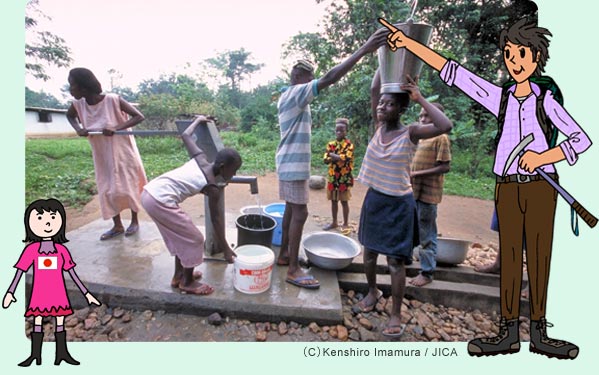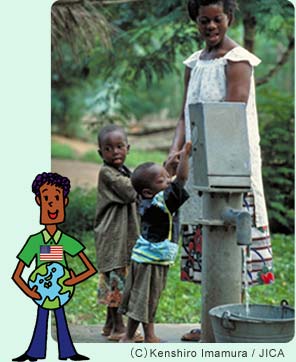
Thanks to an idea proposed by Japan, 2008 is the International Year of Sanitation. And one of the most vital components of sanitation is water, which is essential to everyone's life.
In developing countries, an estimated 80% of all illness is caused by unclean water. Securing a sufficient supply of safe drinking water is a matter of concern for all countries, since 97.5% of the earth's water is seawater that is undrinkable, and fresh water is so scarce that it makes up only 0.01% of the earth's water.
A Revolutionary Tool
Japanese nanotechnology is being used to find a solution to water problems. A reverse osmosis membrane with nanotubes is making it possible to purify some of the earth's abundantly available seawater into water for drinking or industrial use. The semi-permeable membrane, dubbed the "magic membrane," lets water molecules pass through it while repelling salt and other impurities. Japan is said to hold a 65% share in the nano-membrane market.

Other Initiatives
Japan has for many years been providing other water-related assistance to developing countries. With the goal of improving access to safe drinking water and basic sanitation, it has supported the construction and repair of wells, donated water-distribution vehicles, constructed basic sanitation facilities, and undertaken other water-related projects in various countries.
In two provinces in Tanzania, where an installation of large-scale water supply pipelines was planned but ultimately not implemented, Japan has been undertaking small-scale village water supply projects. Japan has also promoted setting water charges at a level that reflects local living standards, making water more accessible to the poor. These are other examples of how Japan seeks to provide assistance that is suited to local conditions.










